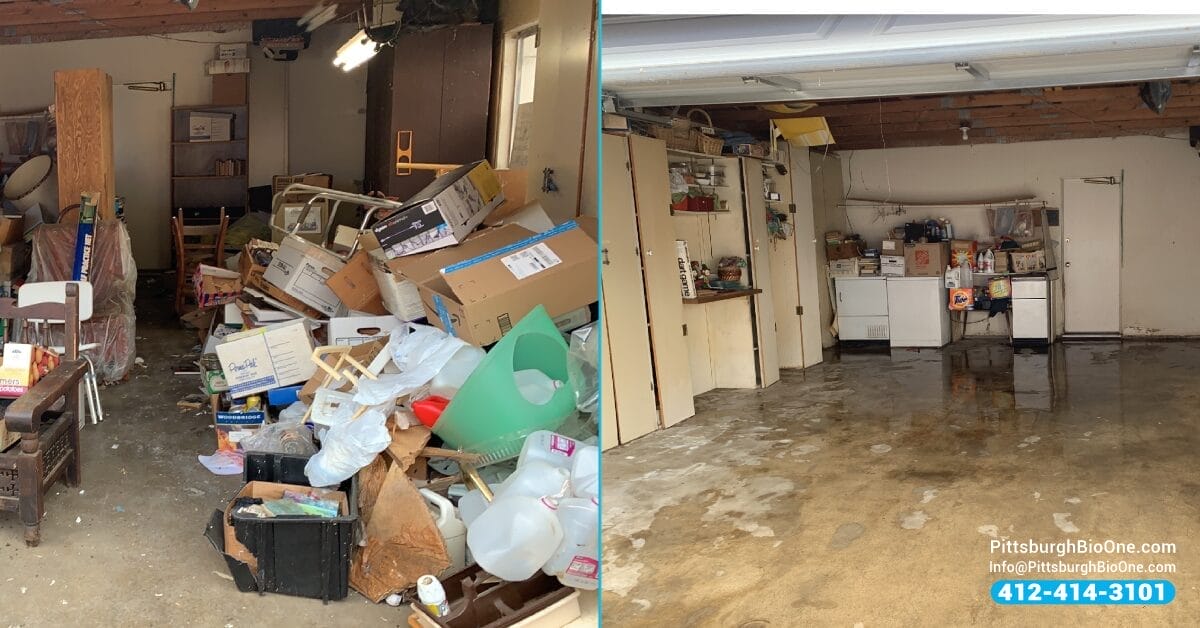
Living with a Hoarding Disorder can be incredibly isolating, not only for the individual engulfed in the tangled web of possessions but also for their families and loved ones. The pile-up of items can create a dangerous living environment and a seemingly inescapable mental fortress for those struggling with hoarding tendencies. Despite the daunting reputation that hoarding disorders carry, there is indeed hope on the horizon. A question that often burns in the hearts of those affected is: Can a hoarder be cured?
In our latest blog, we unpack the realities, treatment approaches, and future visions of a world where hoarding no longer holds its victims captive.
Before we look at the prospects of a cure, it's essential to grasp the intricacies of hoarding. A hoarder experiences great difficulty discarding or parting with possessions, regardless of their perceived value. Cluttered houses, hoarding of items commonly seen as trash, and significant distress or impairment in functioning are also key indicators.
Those living with hoarding face an uphill battle against their own cognition and the environmental circumstances that their disorder fosters. The overwhelming presence of items often acts as a source of comfort or security, which makes the notion of discarding them intolerable to the hoarder.

Hoarders often encounter a unique set of psychological hurdles in their day-to-day lives. These can range from the dual challenge of facing the tangible act of discarding an item to the intricate web of thoughts and emotions that bind hoarding as a coping mechanism.
Cognitive-behavioral therapy (CBT), for instance, targets the distorted beliefs that lead to hoarding, while practitioners of Exposure and Response Prevention (ERP) guide patients through a gradual process of exposure to the anxiety-provoking situation of discarding items. Medication, particularly selective serotonin reuptake inhibitors (SSRI), also plays a significant role in aiding the reduction of compulsive hoarding behaviors.
Support groups such as the popular Clutterers Anonymous provide a safe space for individuals to share their experiences and learn coping strategies from peers. Community resources, including professional organizing services and local government assistance, can be invaluable tools for hoarders looking to take control of their living spaces.
For the families of hoarders, the effect can be as emotionally taxing as it is perplexing. Balancing the desire to help with the need to respect the hoarder's autonomy is a challenging task. Families are often encouraged to seek psychoeducation on hoarding and acquire practical skills to support their loved one effectively.
Creating a supportive, non-judgmental environment can encourage a hoarder to seek treatment. The implementation of family-based interventions, which include family members in treatment plans, can also be highly effective.

The landscape of hoarding treatment is constantly evolving. Recent advances in the understanding of this disorder have paved the way for innovative and promising interventions.
The development of more targeted medications and gene therapies holds the potential for tailoring treatments to individual patients, optimizing therapeutic outcomes. Researchers are tackling the roots of hoarding through the lens of neurobiology to further uncover the neural mechanisms at play, which may yield breakthrough treatments in the coming years.
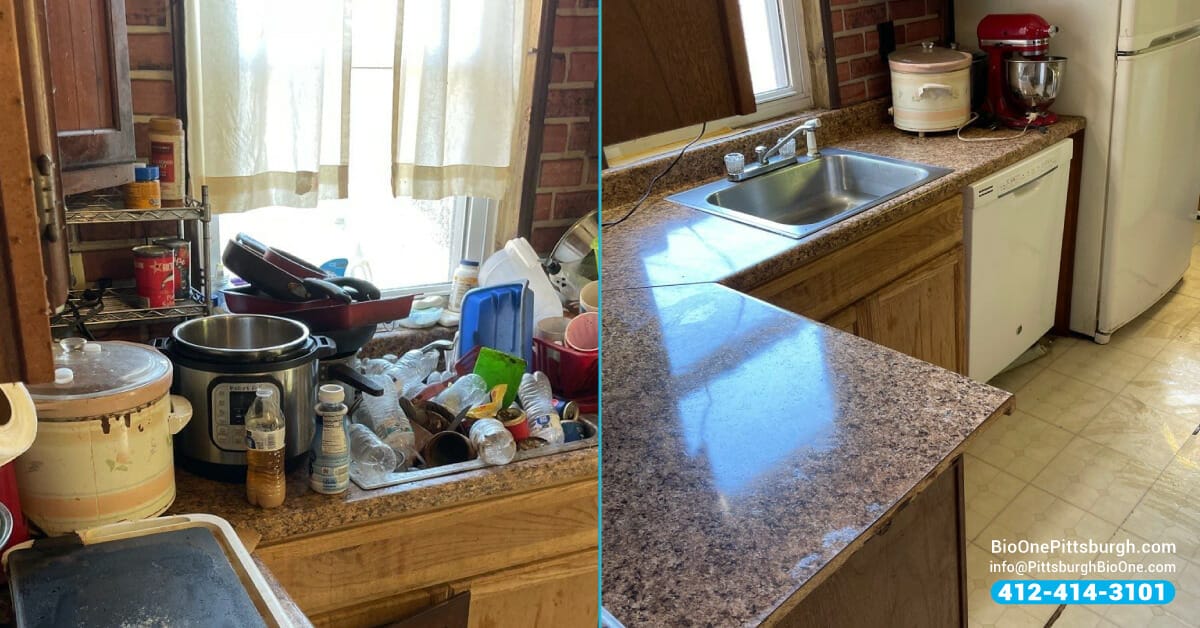
Hoarder homes can pose serious health and safety risks due to the accumulation of items and the potential for infestations and structural damage. Bio-One of Pittsburgh steps in to provide professional cleaning services for homes affected by hoarding. By meticulously restoring the home's condition, Bio-One not only addresses the physical aspects of hoarding but also offers a glimpse of a future where a clean, safe, and serene home is attainable!
Bio-One of Pittsburgh is always ready to assist you in unexpected situations. Our expert specialists are always ready to assist you in dealing with highly pressurized situations that may be emotionally and physically draining, allowing you to focus on other vital activities while healing in a sanitary environment. Locally owned and operated, we provide the following:
Bio-One works closely with victim support centers nationwide and local authorities, communities, emergency services personnel, hoarding task forces, apartment communities, insurance companies, and other organizations to accomplish each customer's most efficient and superior service possible.
Many crime scene cleanup companies may face unexpected, unfortunate life events. Still, Bio-One is the right choice because of our expertise and profoundly caring and discreet specialists.
We are proud members of the NAPO Pittsburgh - National Association of Productivity & Organizing Professionals!
Bio-One of Pittsburgh serves the following Pennsylvania counties: Allegheny County, Washington County, Beaver County, Butler County, Armstrong County, Westmoreland County, Lawrence County, Greene County, Fayette County, and Mercer County.
We also serve the following cities and surrounding communities: from Allison Park all the way to Creighton, Crescent, Cuddy Curtisville, Millvale, Monroeville, Oakmont, Pitcairn, Pleasant Hills, Plum, Port Vue, Presto, Rankin, Rennerdale, Rural Ridge, Russellton, Sharpsburg, South Park to Springdale, we are ready to help you.

If you've ever been in a room with the lingering scent of urine, you know how unpleasant it can be. Unattended urine odor can not only make a space unpleasant but also dangerous. That's why it's important to hire professionals to get rid of urine smell, or animal and human waste from any setting.
With that being said, there are several ways homeowners and property managers can tackle the remediation of urine-contaminated areas prior to professional help arriving onsite. In this blog post, we'll share five tips for helping eliminate the smell of urine from your home or business!
Urine smell can be both unpleasant and concerning, especially when there is uncertainty about its source. Identifying the source of the odor is essential for proper and effective cleanup. Whether it is human or animal, assessing the level of danger is required. This task requires a keen sense of smell and knowledge of animal and human anatomy and behavior!
Using a strong cleaning solution is essential to remove urine particles, which can harbor harmful bacteria. It is important to clean not only the surface area but also any surrounding objects and materials that may have been affected.
After cleaning, it is important to disinfect the area. This will help prevent any residual bacteria or germs from spreading and causing further issues.
Disinfectants may come in the form of sprays, wipes, or even powders that can be used for targeted areas. Make sure to follow all instructions on the product's label carefully to ensure that it is used safely and effectively! Once the disinfectant has been applied, allow it to air dry before allowing any contact with humans or animals.
Traditional cleaning products simply won't help you get rid of the urine smell. Enzyme-based odor neutralizers can come in handy in these situations! These specialized products target the enzymes in urine that cause odor, breaking them down and neutralizing the smell. Not only are they highly effective, but they're also safe for use on a variety of surfaces, from carpets and upholstery to tile and grout.
When choosing an enzyme-based odor neutralizer, be sure to select one that is specifically designed for urine odors. This will ensure maximum effectiveness and a fresh, clean scent throughout your home or business.
Seal off the affected rooms or areas with plastic sheeting and ensure proper ventilation not only helps to contain the odor but also speeds up the process of getting rid of it. By doing this, you prevent the odors from spreading and causing further damage while allowing fresh air to circulate, ultimately leading to a more comfortable and healthier environment.
It's always wise to seek professional help if you're unsure of how to handle the situation, as they can provide additional guidance and recommendations!
When dealing with hazardous waste such as human and animal feces, it is crucial to ensure safe and complete remediation. That's where a professional biohazard remediation team comes in. With their expertise and specialized equipment, they can effectively clean up waste and eliminate any potential health risks.
It's not worth putting yourself or others in danger by attempting to handle the situation on your own. Trusting the professionals guarantees that the hazardous waste will be properly disposed of and the affected area will be thoroughly cleaned, leaving no trace of the biohazard behind. Don't hesitate to contact a professional biohazard remediation team for a clean and safe solution!
Dealing with unpleasant urine odors can be a challenge for any homeowner. Proper and complete remediation is essential to ensuring a safe and disinfectd environment free of hazardous waste. Following the steps outlined above are important first steps in removing the smell of urine and getting rid of unpleasant odors.
However, if human or animal feces is the source, it is important to contact an expert biohazard remediation team like Bio-One of Pittsburgh to reduce health risks and potential exposure to hazardous substances. Taking the time to understand what type of odor one is dealing with and following proper protocol will help ensure a pleasant and healthy environment for everyone!

Bio-One of Pittsburgh is always ready to assist you in unexpected situations. Our expert specialists are always ready to assist you in dealing with highly pressurized situations that may be emotionally and physically draining, allowing you to focus on other vital activities while healing in a sanitary environment. Locally owned and operated, we provide the following:
Bio-One works closely with victim support centers nationwide and local authorities, communities, emergency services personnel, hoarding task forces, apartment communities, insurance companies, and other organizations to accomplish each customer's most efficient and superior service possible.
Many crime scene cleanup companies may face unexpected, unfortunate life events. Still, Bio-One is the right choice because of our expertise and profoundly caring and discreet specialists.
Bio-One of Pittsburgh serves the following Pennsylvania counties: Allegheny County, Washington County, Beaver County, Butler County, Armstrong County, Westmoreland County, Lawrence County, Greene County, Fayette County, and Mercer County.
We also serve the following cities and surrounding communities: from Allison Park all the way to Creighton, Crescent, Cuddy Curtisville, Millvale, Monroeville, Oakmont, Pitcairn, Pleasant Hills, Plum, Port Vue, Presto, Rankin, Rennerdale, Rural Ridge, Russellton, Sharpsburg, South Park to Springdale, we are ready to help you.

Are you struggling with keeping your home clean and tidy due to hoarding? Do you feel like you're constantly cleaning, but nothing ever changes? Know this: you are not alone. According to the National Institute of Mental Health, hoarding is a complex problem that affects an estimated 2-6% of the population. And while there's no easy fix, professional help from a company like Bio-One can make all the difference. Keep reading to learn more about our comprehensive approach to cleaning hoarding.
Cleaning and decluttering your home is essential to a successful cleaning regimen. As daunting as the prospect may seem, the first step to cleaning out your space can be done with relative ease. Before you start cleaning hoarding, focus on gathering all the trash in your living environment, eliminating any unnecessary clutter that could prevent you from cleaning effectively.
You can start by throwing away old newspapers, empty fast food containers, and anything else you don’t need or want. Check all hidden spots where hoarding might occur, such as closets and cabinets, and take out items that don't belong there. Cleaning out this trash will help make cleaning other parts of your home much easier!
Once hoarding cleanup is done and all the trash is cleared out, it's time to tackle the dirt and grime that has built up over time. Scrubbing floors, dusting surfaces with a damp cloth, and vacuuming carpets are all effective ways to remove any dirt that might have accumulated amongst previously hoarded items. When everything shines brighter than before, you can rest easy knowing that your hoarding cleanup job was successful!
Clutter can make any space look disorganized and uninviting. Taking the time to declutter can help you reclaim your space and make cleaning much easier. Start by going through the items in your living area, removing anything that hasn't been used or worn in a while, such as clothes, books, furniture, and knick-knacks. It's important to remember that cleaning is not hoarding - if something isn't useful for you anymore, it's best to let it go. You'll soon find that with a bit of effort, your home will feel lighter and more organized than before.
Now that you've cleared out the clutter, it's time to make the space work for you. You can organize it in a way that makes sense for your space and needs. Think about what kind of storage solutions make the most sense - maybe installing some shelving or creating designated spots for things like keys and bills – and then get creative! You can turn an unused room into an organized, productive area with little effort.
A clean home is important for both your physical and mental health, so getting rid of any clutter or dirt that might be around is essential. However, decluttering and cleaning can be difficult, especially if you're living in a space that's been hoarded for a long time. That's where our team comes in! Our Pittsburgh hoarding cleaning technicians are highly-skilled professionals with unmatched compassion, discretion, and experience for the most challenging hoarding cleaning jobs.
If you're feeling overwhelmed by the thought of decluttering your home, give us a call. We'll be happy to help you start creating a healthy living space..
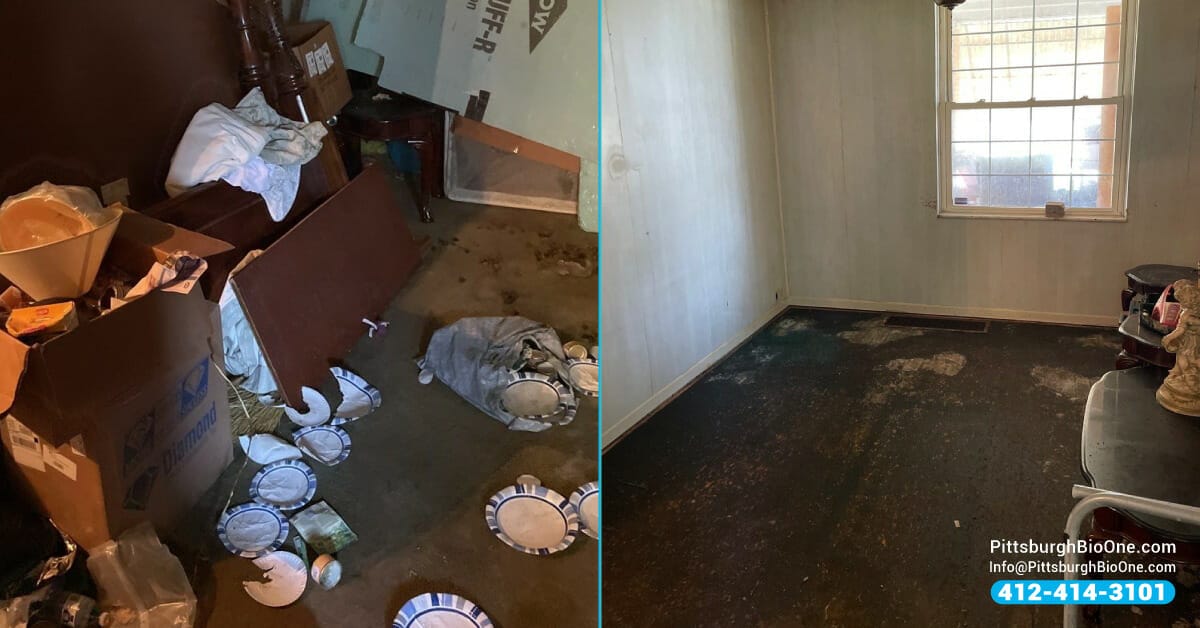
Bio-One of Pittsburgh is always ready to assist you in unexpected situations. Our expert specialists are always ready to assist you in dealing with highly pressurized situations that may be emotionally and physically draining, allowing you to focus on other vital activities while healing in a sanitary environment. Locally owned and operated, we provide the following:
Bio-One works closely with victim support centers nationwide and local authorities, communities, emergency services personnel, hoarding task forces, apartment communities, insurance companies, and other organizations to accomplish each customer's most efficient and superior service possible.
Many crime scene cleanup companies may face unexpected, unfortunate life events. Still, Bio-One is the right choice because of our expertise and profoundly caring and discreet specialists.
We are proud members of the NAPO Pittsburgh - National Association of Productivity & Organizing Professionals!
Bio-One of Pittsburgh serves the following Pennsylvania counties: Allegheny County, Washington County, Beaver County, Butler County, Armstrong County, Westmoreland County, Lawrence County, Greene County, Fayette County, and Mercer County.
We also serve the following cities and surrounding communities: from Allison Park all the way to Creighton, Crescent, Cuddy Curtisville, Millvale, Monroeville, Oakmont, Pitcairn, Pleasant Hills, Plum, Port Vue, Presto, Rankin, Rennerdale, Rural Ridge, Russellton, Sharpsburg, South Park to Springdale, we are ready to help you.
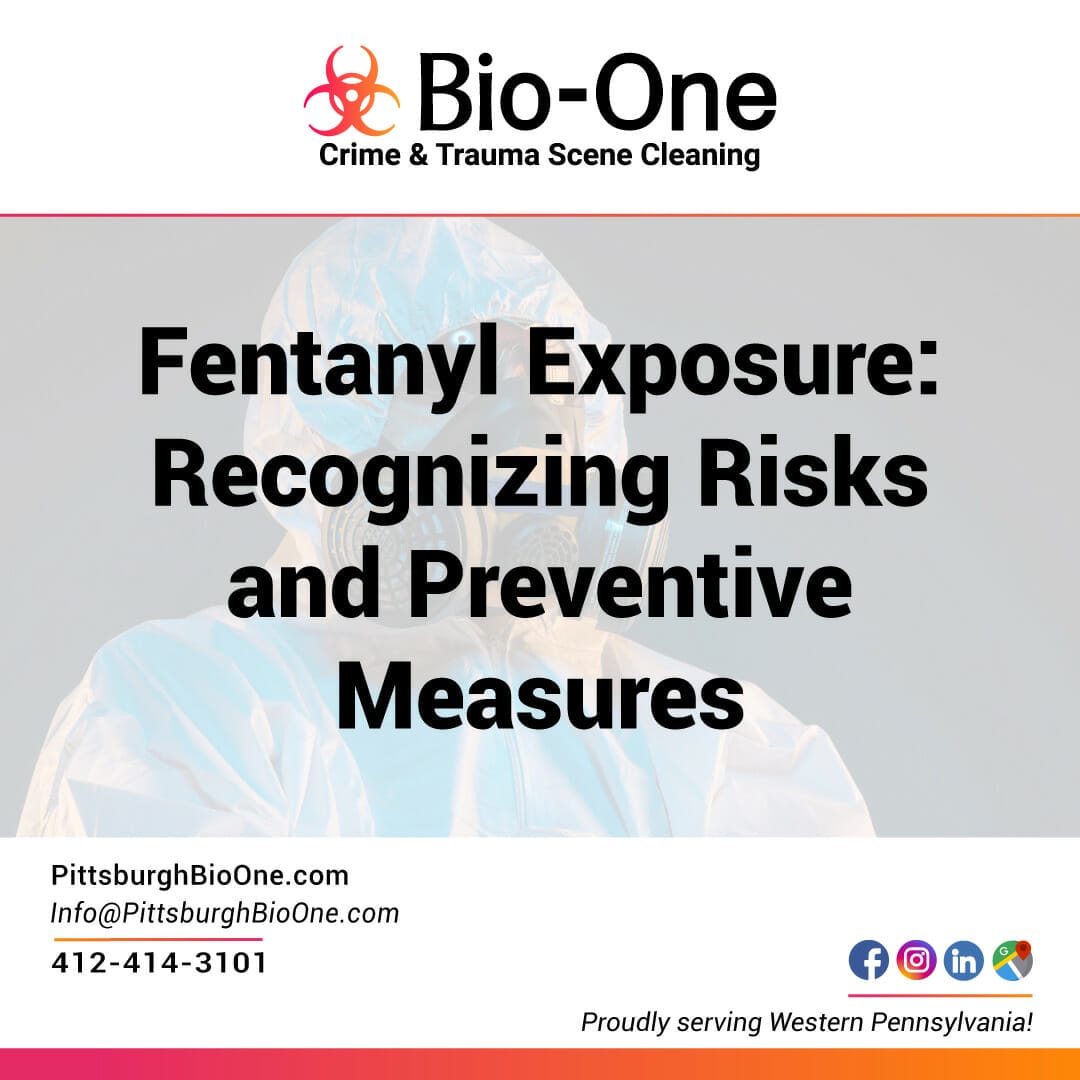
Fentanyl is a potent and dangerous drug that is responsible for numerous overdose deaths. The drug is highly addictive, and even small doses can be lethal. Its potency makes it dangerous, not just for drug users but also for emergency responders and anyone exposed to the drug unintentionally. As a result, we must understand the risks associated with fentanyl exposure and the preventive measures they must take to stay safe.

Fentanyl is a synthetic opioid that is 50-100 times more potent than morphine. It is a prescription medication typically used to treat severe pain, but it is also produced illegally and sold on the streets. Illegally, fentanyl can be found in:
The production of fentanyl involves mixing various chemicals, often with no medical background or safety regulations, which makes the drug highly unpredictable and dangerous.
Fentanyl exposure can occur through various means, including ingestion, inhalation, and skin contact. It is a highly potent drug, and even small amounts can lead to overdose and death. The risks of fentanyl exposure include:
If you suspect that you or someone you know has been exposed to fentanyl, you must act quickly to prevent an overdose. The first step is to move the person to fresh air immediately. Next, call 911 and take other measures to ensure that emergency help is on the way.
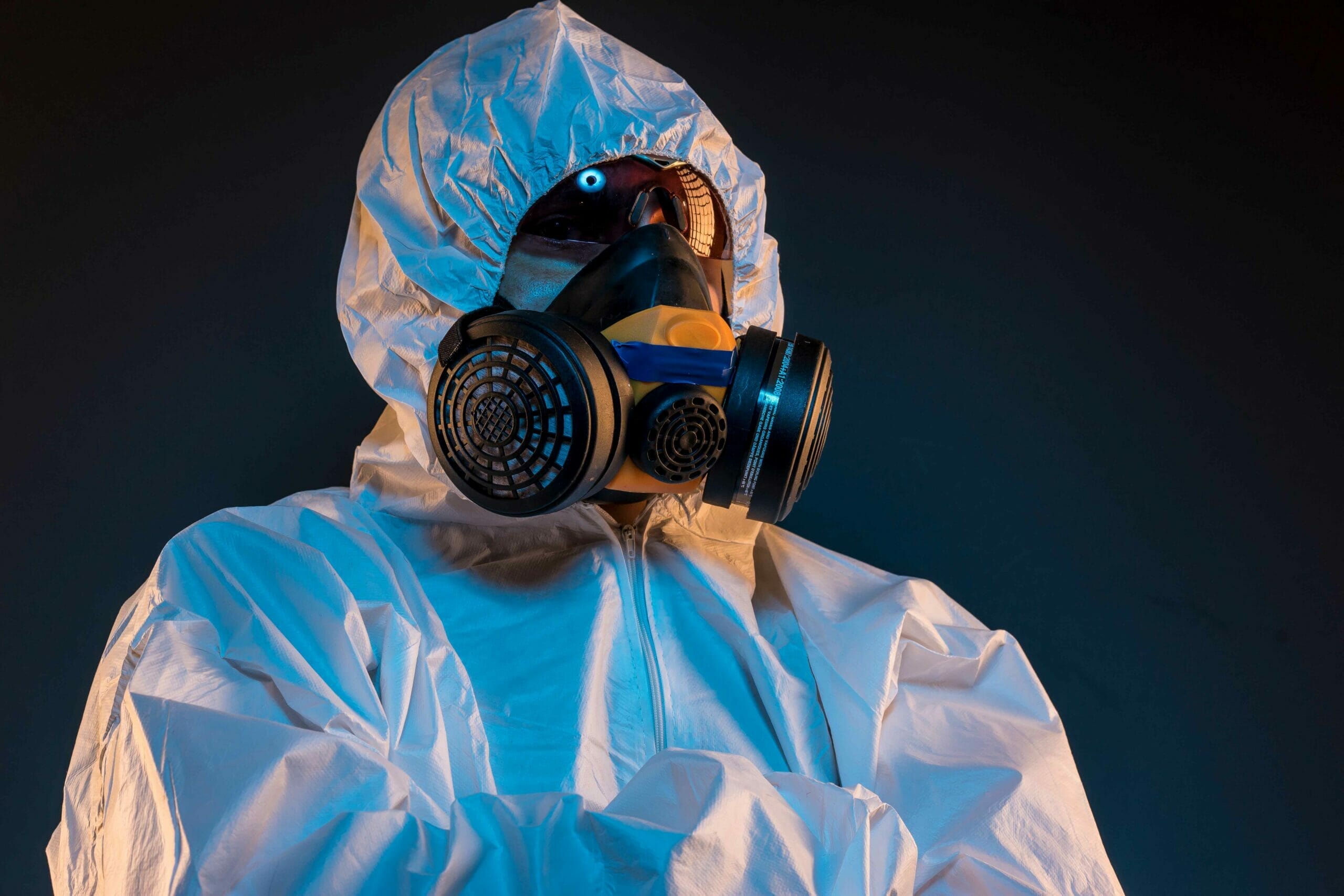
Emergency responders can provide a life-saving medication called Naloxone, which can reverse the effects of fentanyl and other opioids. It is crucial to seek medical attention as soon as possible, even if the person appears to have recovered from an overdose. Fentanyl can remain in the body for a long time, and delayed symptoms or complications may occur.
If you work in environments where fentanyl is present, it's essential to wear personal protective equipment that includes gloves, masks, and safety glasses when handling the disposal. If you suspect that a substance contains fentanyl, do not handle it or attempt to identify it on your own. Instead, contact law enforcement or a hazardous materials team for proper handling and disposal.
Fentanyl exposure is a severe public health problem. If you suspect that a property has been contaminated with fentanyl, seek professional help. Our experts at Bio-One of Pittsburgh can remediate homes, businesses, and properties from fentanyl residue and other biohazardous waste. We are available 24/7, 365 days a year to answer your call!
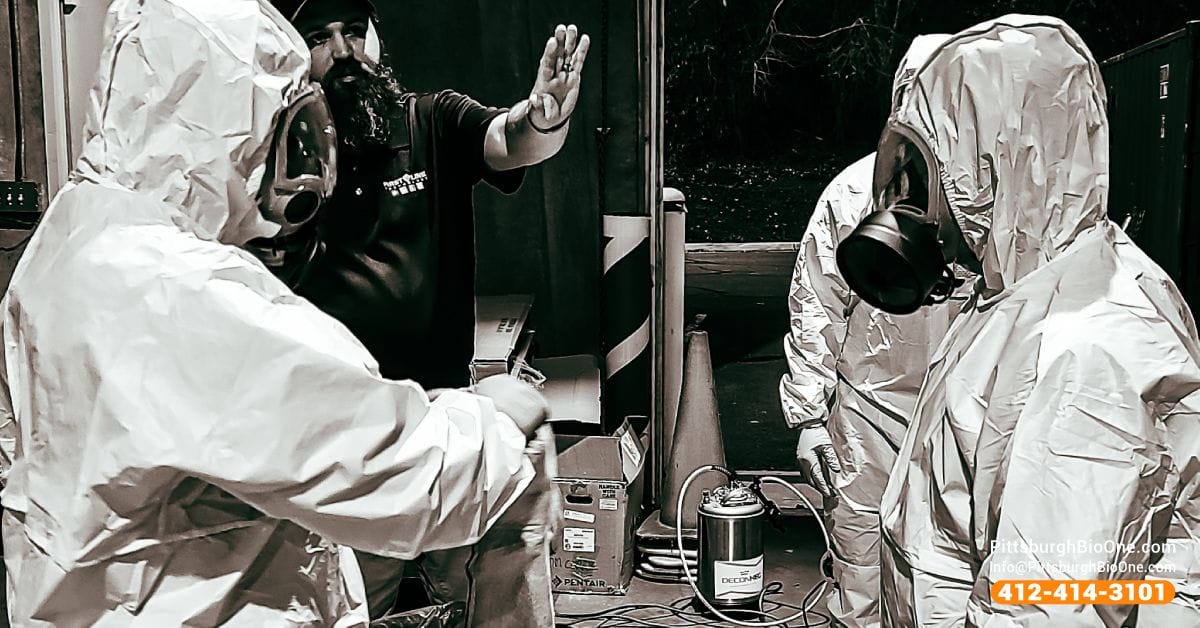

Hoarding cleanouts can be a difficult and overwhelming process for both the individual who is hoarding and their family and friends. It is essential to have a clear strategy in place and execute it well. In this blog post, we are going to cover the top 10 hoarding cleanout tips that you need to know before starting the process. Remember Bio-One of Pittsburgh can assist in these situations.
Disclaimer: Please note that we at Bio-One of Pittsburgh are a professional biohazard and hoarding cleanup company. While we strive to provide helpful information and resources on hoarding, we are not mental health professionals. Our content is intended to raise awareness about the complexities of hoarding and to offer practical cleanout tips. Please consult with a mental health professional for advice and treatment options related to hoarding behaviors.
Bio-One of Pittsburgh

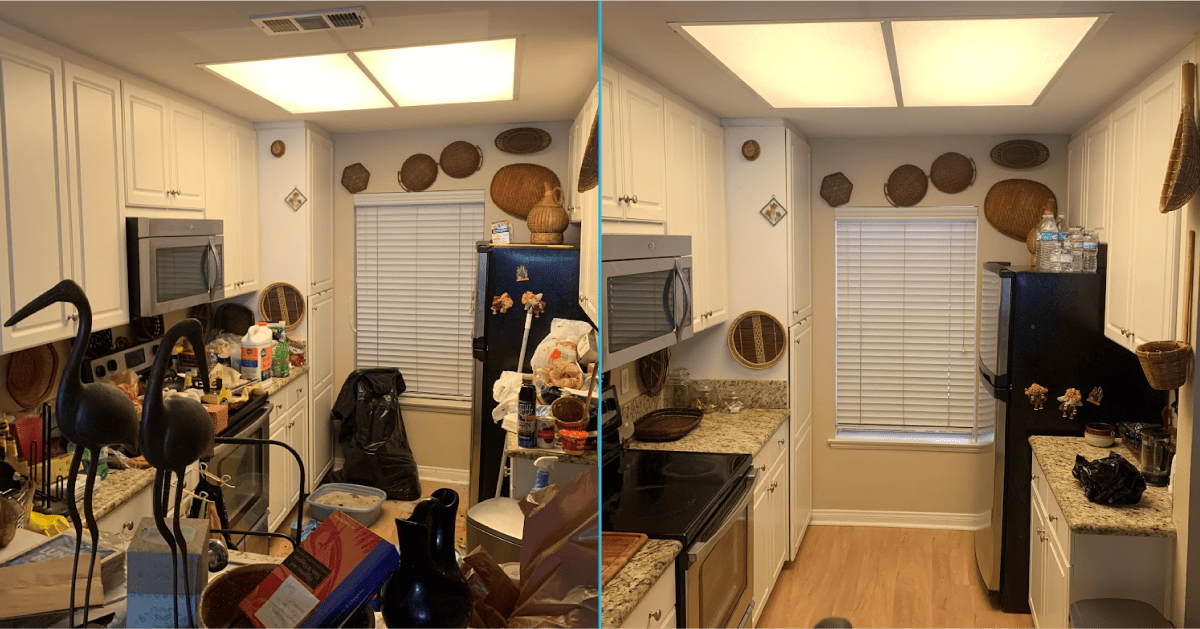
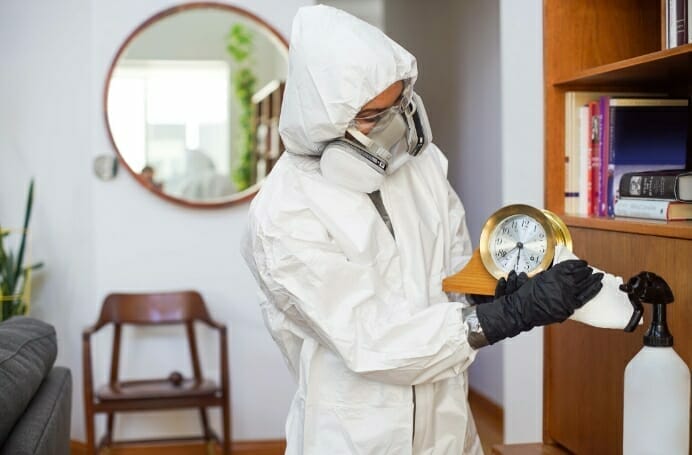
Following our hoarding cleanout tips will help you accomplish the goal of ultimately helping your loved one. Starting with a plan, breaking tasks into small steps, and having a disposal plan are all important components of the process. Don’t hesitate to seek professional help if necessary. Bio-One of Pittsburgh is here to provide support through the entire process.

Have you ever walked into your home and been hit with a musty smell? Does your house have an odor that you just can't seem to get rid of no matter what you do? You're not alone. A musty smell in your home can be frustrating to deal with and can make your living space feel uncomfortable. But don't worry, there are some simple tips and tricks you can use to get rid of that musty smell for good! Here are some of the best practices to help you get rid of musty smells and make your home fresh again.
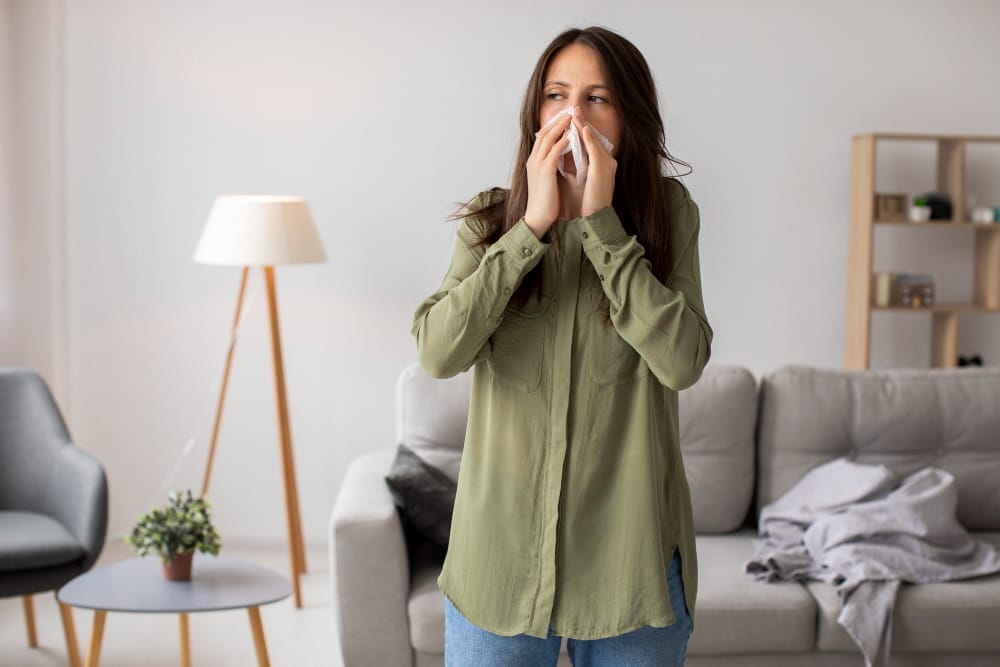
The first step to get rid of musty smells in your home is identifying the source. Musty smells can come from a variety of sources including:
Walk through each room of your house and try to determine where the musty smell is coming from.
Once you've identified the source of the musty smell, clean the affected area thoroughly. Dust, vacuum, or sweep the space to remove any debris. If moisture is an issue, use a dehumidifier to dry the area. You can also use fans or open windows to increase ventilation.
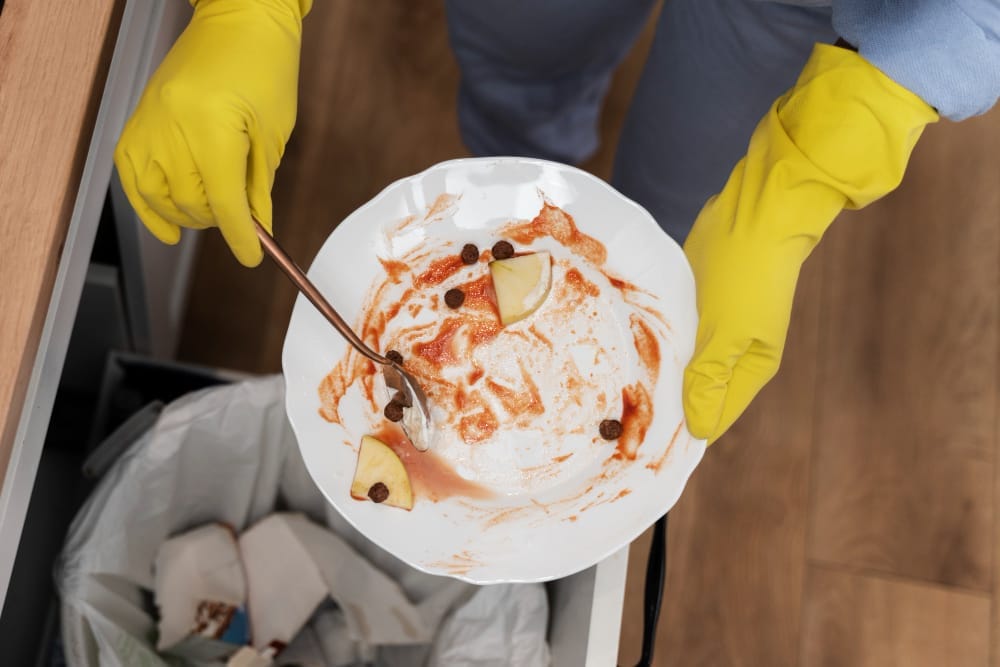
Instead of using harsh chemicals, consider using natural deodorizers to eliminate musty smells. Here are some options:
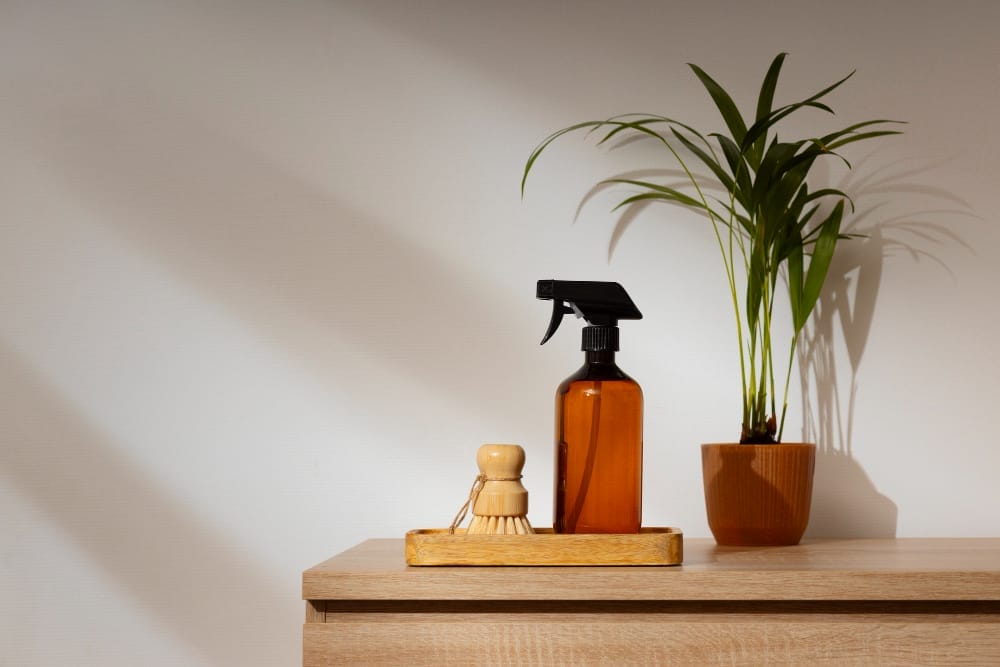
Remember to always spot-test any natural deodorizers before using them extensively, as some may cause discoloration or damage to certain materials. Also, make sure to replace the deodorizers regularly for maximum effectiveness. You can also use commercial deodorizers or air fresheners, but be sure to choose products that are safe for indoor use.
Mold and mildew not only cause unpleasant odors but can also pose health risks. Here are some tips to get rid of musty smells and mold:
Learn more: Mold Removal - 4 Key Areas Where Mold Can Grow Indoors
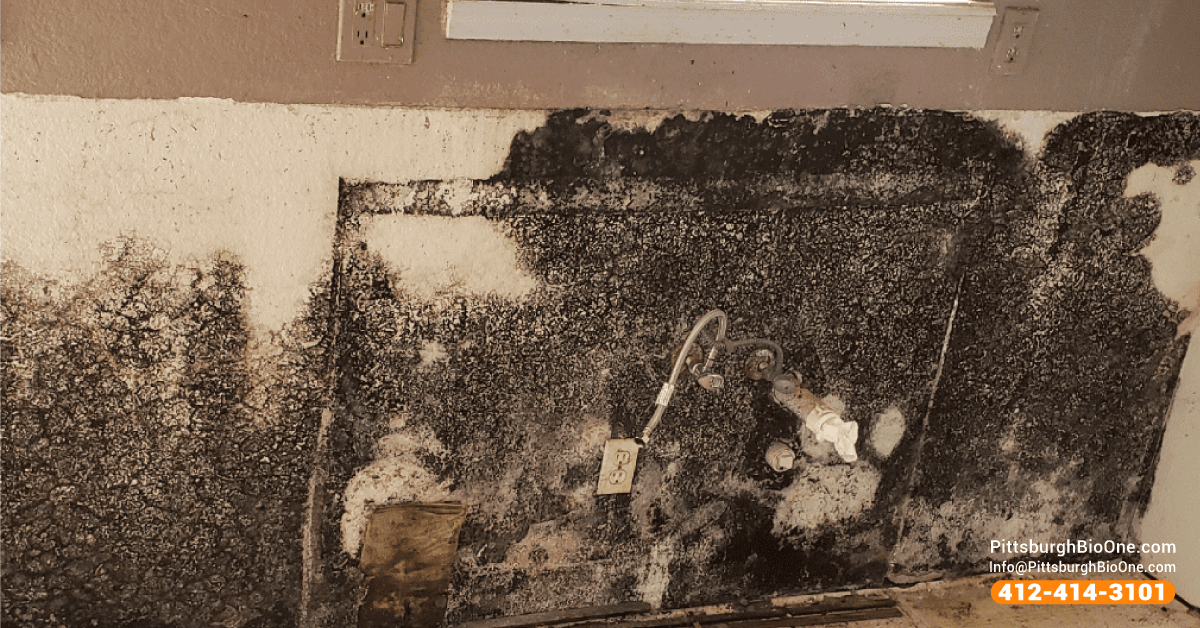
If the musty smell persists, even after cleaning and airing out the space, it's time to call in the professionals. Bio-One of Pittsburgh offers professional odor removal services that use advanced technologies to eliminate any unpleasant odors in your home. Our team of experts can identify, locate, and get rid of the source of any smells. Call our team for a free consultation in Western Pennsylvania today!
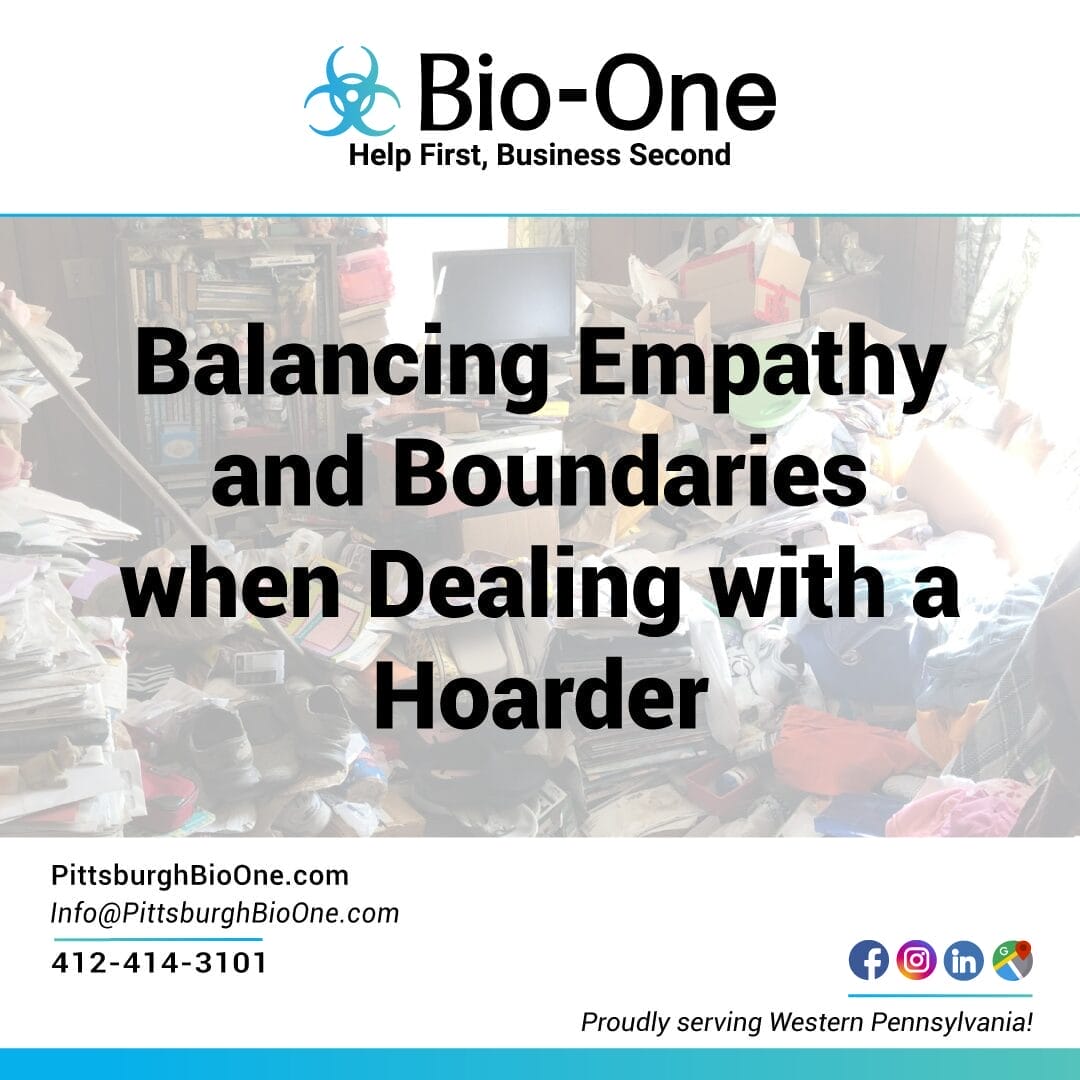
Dealing with a hoarder can be a challenging experience for anyone involved. Hoarding is a complex disorder that is often misunderstood, and it can be hard to approach loved ones about their hoarding habits. There are many ups and downs throughout the process, and it can be impossible to know the best approach for success. That's what we're here to do. In this blog post, we'll explore the challenges that come with dealing with a hoarder.
We'll discuss the importance of empathy and boundaries and how to find the balance that works for you. So, let's dive in!
One of the key components of dealing with a hoarder is understanding the disorder. Hoarding disorder is a mental illness characterized by the excessive acquisition of items, regardless of their value, and the inability to discard them. People with hoarding tendencies often feel emotionally attached to their possessions. It is vital to approach hoarding with an empathetic and understanding attitude, as hoarders may not be aware of the extent of their condition.
Helping someone with hoarding requires setting boundaries that protect both you and the hoarder. These boundaries need to be well-defined and communicated upfront. You must be honest about what you can and cannot do. For instance:
These boundaries may be difficult to set up and maintain, but they are essential for the safety and well-being of everyone involved.
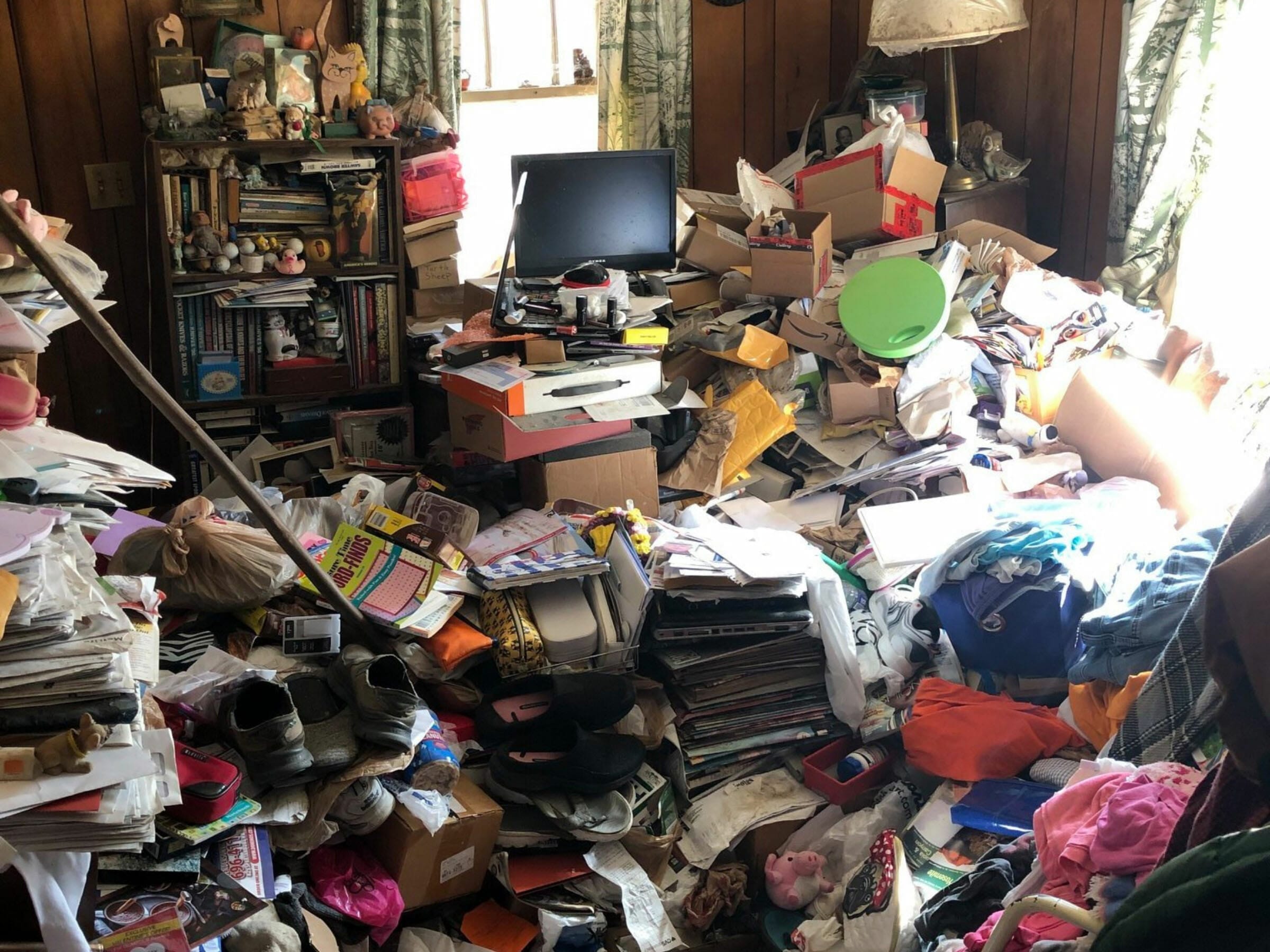
Hoarding stems from deep psychological issues, so you have to remember that it's not the hoarder’s fault. They are not intentionally creating chaos or trying to hurt anyone. Your empathy can help them feel more comfortable to reach out for help. When dealing with a hoarder, try a non-judgmental and non-confrontational approach. It will be easier for them to accept your help if they feel that you genuinely care about their well-being.
Dealing with a hoarder can be a challenging process, and it may not be something that you can manage alone. Enlisting the help of a professional is often necessary. Professional help may include a professional organizer, hoarding therapist, or hoarding cleanup company. These professionals have experience in dealing with hoarding disorders and can provide essential guidance and support.

The process of overcoming hoarding can often be filled with many setbacks. But it's important to remember that progress can be made, no matter how small! Celebrate every milestone along the way, such as discarding the first pile of clutter or organizing the kitchen counter. Small wins can help the hoarder stay motivated and could help them get a step closer to overcoming the condition.
Dealing with a hoarder can be an emotionally challenging experience. The key to finding success is a balance between empathy and boundaries. While you must be firm in setting boundaries, approaching the situation with empathy and sensitivity can make all the difference. Seeking professional help when necessary can also go a long way in the process.
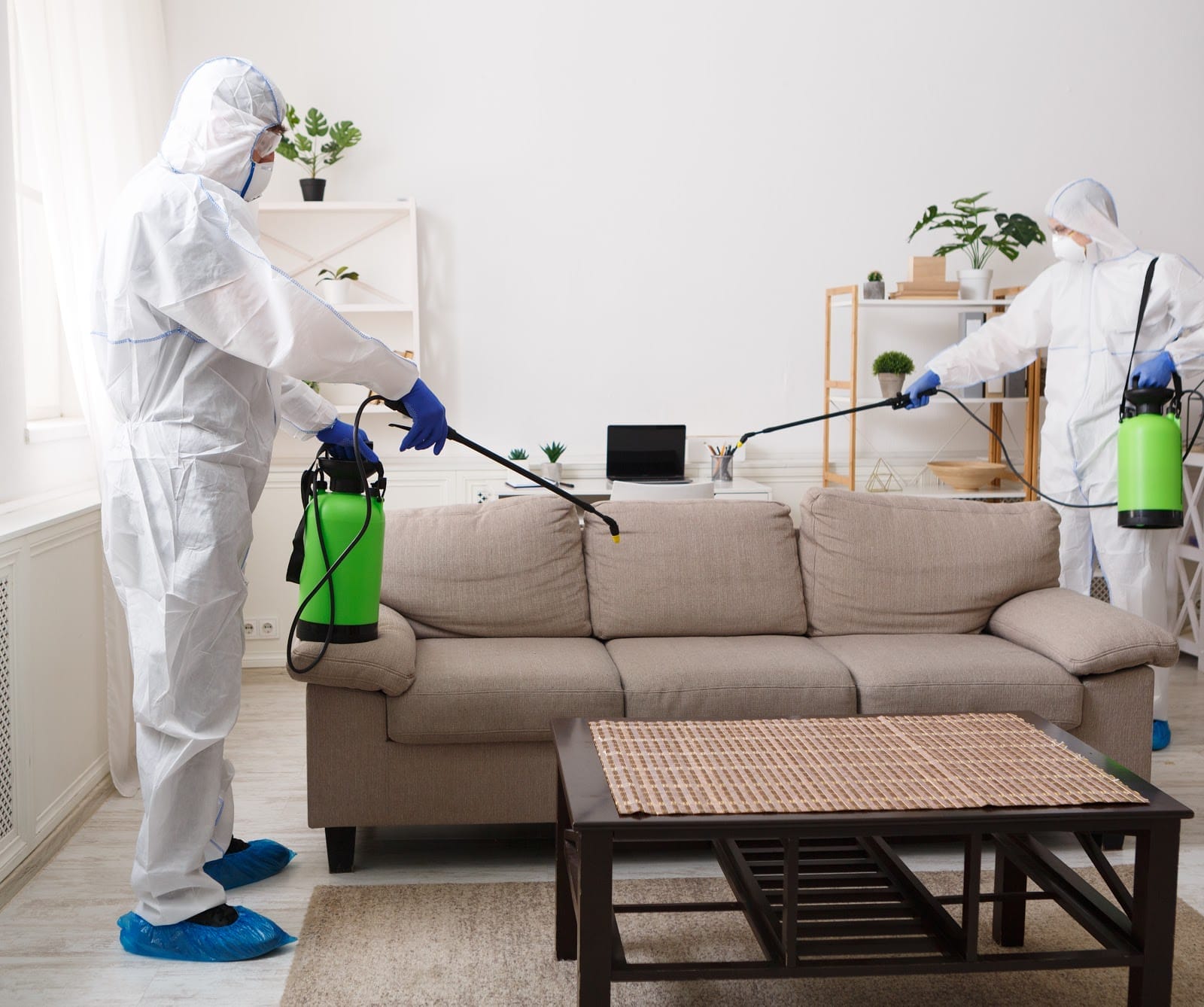
Remember to celebrate every small win along the way, as they can help the person with Hoarding Disorder remain motivated towards overcoming the disorder. Ultimately, the process requires patience, understanding, and support to succeed. If you need help, call Bio-One for help! Our team is ready to help.
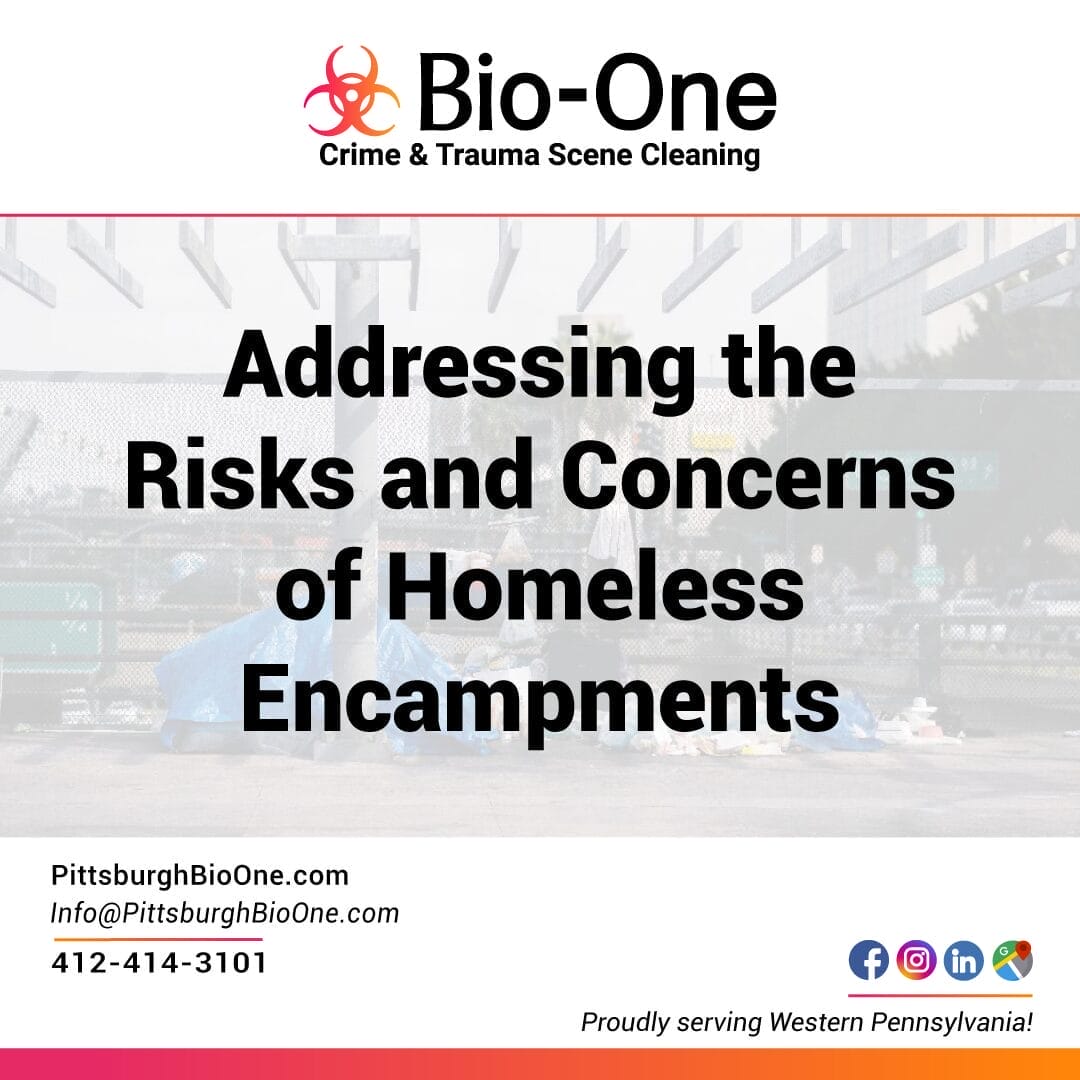
Homeless encampments have become a common sight in many urban areas. While they may serve as temporary shelters for people experiencing homelessness, these often unplanned environments can pose significant risks to both their occupants and the larger community. From public health issues to the potential for physical harm, homeless encampments can be a cause for concern. In this blog post, we'll explore the many dangers of homeless encampments and the importance of having a professional team to address them.
Homeless encampments often lack proper sanitation, which can lead to health hazards. Infectious diseases like hepatitis A, tuberculosis, and COVID-19 can thrive in such conditions, posing risks to both the occupants and nearby communities. Additionally, poor sanitation and improper waste disposal can attract rats and mosquitoes, further contributing to the spread of disease.
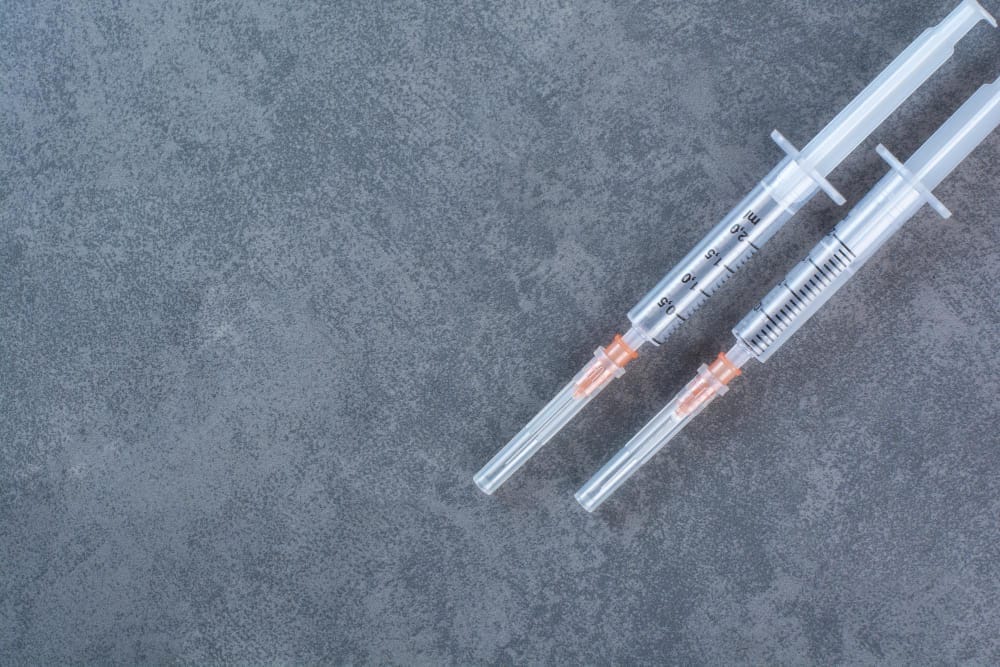
Most of the time, homeless camps are situated in unsafe areas, with the occupants left vulnerable to violence, theft, and assault. Hazardous materials, such as discarded needles, can pose a significant threat to public safety. Unregulated cooking and heating methods in encampments can also cause fires, putting both the occupants and surrounding structures at risk.
Homeless encampments, particularly those with poor sanitation, can attract pests like rodents, cockroaches, and flies. These pests hurt public health, as they can spread diseases like E. coli, salmonella, and typhus. Nearby buildings can be affected by infestations from encampments, resulting in costly damage and health hazards.

Homeless encampments often generate significant amounts of waste and can contribute to the pollution of the surrounding area. Improperly discarded materials like trash, used needles, and human waste can pollute nearby watersheds and affect local wildlife.
Community concerns surrounding these encampments often center around the potential spread of infectious diseases and the presence of hazardous materials. One study found that residents living near homeless encampments reported a higher frequency of respiratory problems, gastrointestinal issues, and skin irritations compared to those living further away.
Additionally, the accumulation of waste and debris in these encampments can also impact property values and deter potential economic development in the area. The lack of proper sanitation and hygiene facilities also poses a threat to both public health and the environment.
Proper management and regulation of homeless encampments are crucial for protecting public health and addressing community concerns. Some solutions include providing access to clean restrooms and hygiene facilities, regularly cleaning and sanitizing encampment areas, and implementing waste management strategies.

It is also essential to provide support services for individuals experiencing homelessness. Some ways to help include:
Moreover, involving community members in the planning and management of homeless encampments can help foster understanding and collaboration between all stakeholders.
Learn more: Get Involved - NCH - National Coalition for the Homeless
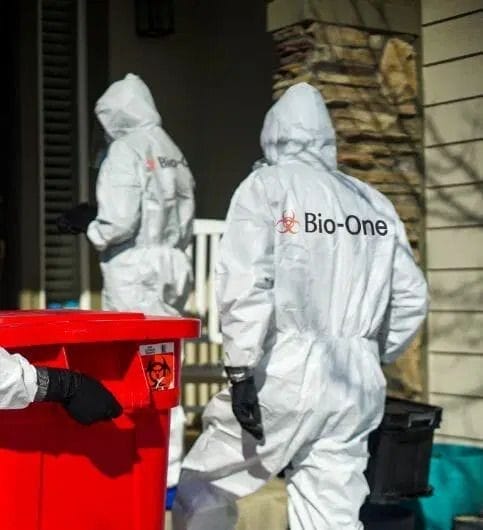
Bio-One of Pittsburgh can help improve the health and safety of occupants and the larger community facing a homeless encampment situation. Our team can handle the clean-up and sanitization of camps, ensuring safety and reducing the risk of harmful exposure. Additionally, working with local authorities, Bio-One of Pittsburgh can dispose of hazardous waste materials and mitigate environmental damage.
Our goal is to make a positive impact on our local community, and we understand the importance of addressing homeless encampments with sensitivity and compassion. If you or someone you know is facing a homeless encampment situation, please contact Bio-One of Pittsburgh for assistance!

If you have a loved one who is a hoarder, you may feel overwhelmed and unsure of how to help them clean and tidy up their home. You might be wondering where to start or how to approach the situation with empathy and understanding. In this blog post, we will discuss some tips on how to help a hoarder downsize their home with compassion.
Make a list of essential items that the hoarder cannot part with and include them in the plan. The plan should be realistic, achievable, and adaptable, given that hoarders may get emotionally attached to their possessions. Moreover, organizing the plan of attack also helps the hoarder visualize the achievable target and gives a structured idea of how the downsizing process will be.
Take a look at this hoarding clean-up plan, developed by our friends at Bio-One of Oceanside:
1. Educate Yourself about Hoarding Disorder: Reach Out to a Mental Health Specialist
2. Contact a Professional Hoarding Cleaning Service to Get Started
3. Decide What to Keep, What to Donate, and What to Throw Away
4. Create a Plan to Keep Your House Clean and Organized in the future
Read the full article here: 4-Step Plan For a Successful Hoarding Cleaning with Bio-One
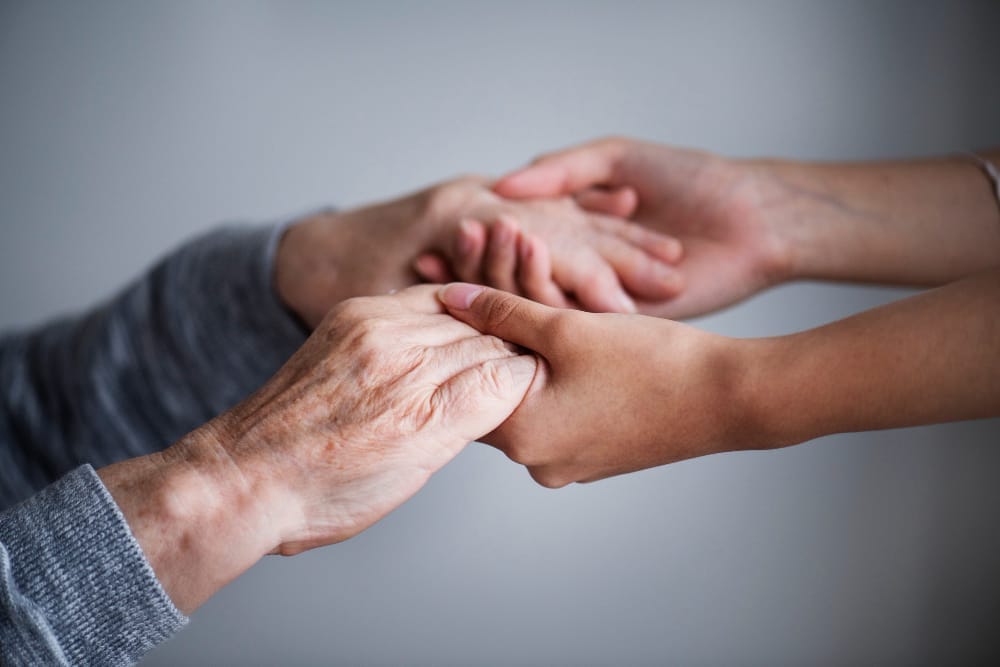
The first step in helping a hoarder downsize their home is to be patient and understanding. Keep in mind that hoarding is a mental health disorder, and it can take years for a hoarder to accumulate their possessions. You have to approach this situation with empathy, without judgment or criticism. Understand that hoarders may not be able to part with their belongings immediately, and getting angry or frustrated may only worsen the situation.
Hoarders usually struggle with anxiety, unsure of where to begin. You can offer to assist in sorting items into piles, labeling boxes, or even transporting items to donation centers or recyclers. Additionally, you can offer emotional support by listening to their concerns, providing encouragement, and celebrating small successes. A few ways to help clean up every room include:


Keep in mind that downsizing a hoarder's home is a big project, so be willing to help in the long run rather than a one-off event.
Seeking professional help is a vital step in helping a hoarder downsize their home. In many cases, hoarding is accompanied by additional mental health concerns, such as anxiety and depression. It may be necessary to seek the guidance of a mental health professional who can help diagnose and treat these underlying issues.
Learn more: Tips for Helping a Loved One Dealing With Hoarding Disorder

Additionally, hoarding cleanup companies, like our team at Bio-One of Pittsburgh, can help remove large amounts of clutter, dismantle waste, and sanitize homes. We are the leading hoarding cleanup company in Western Pennsylvania and can take on any hoarding situation with care, compassion, and discretion.
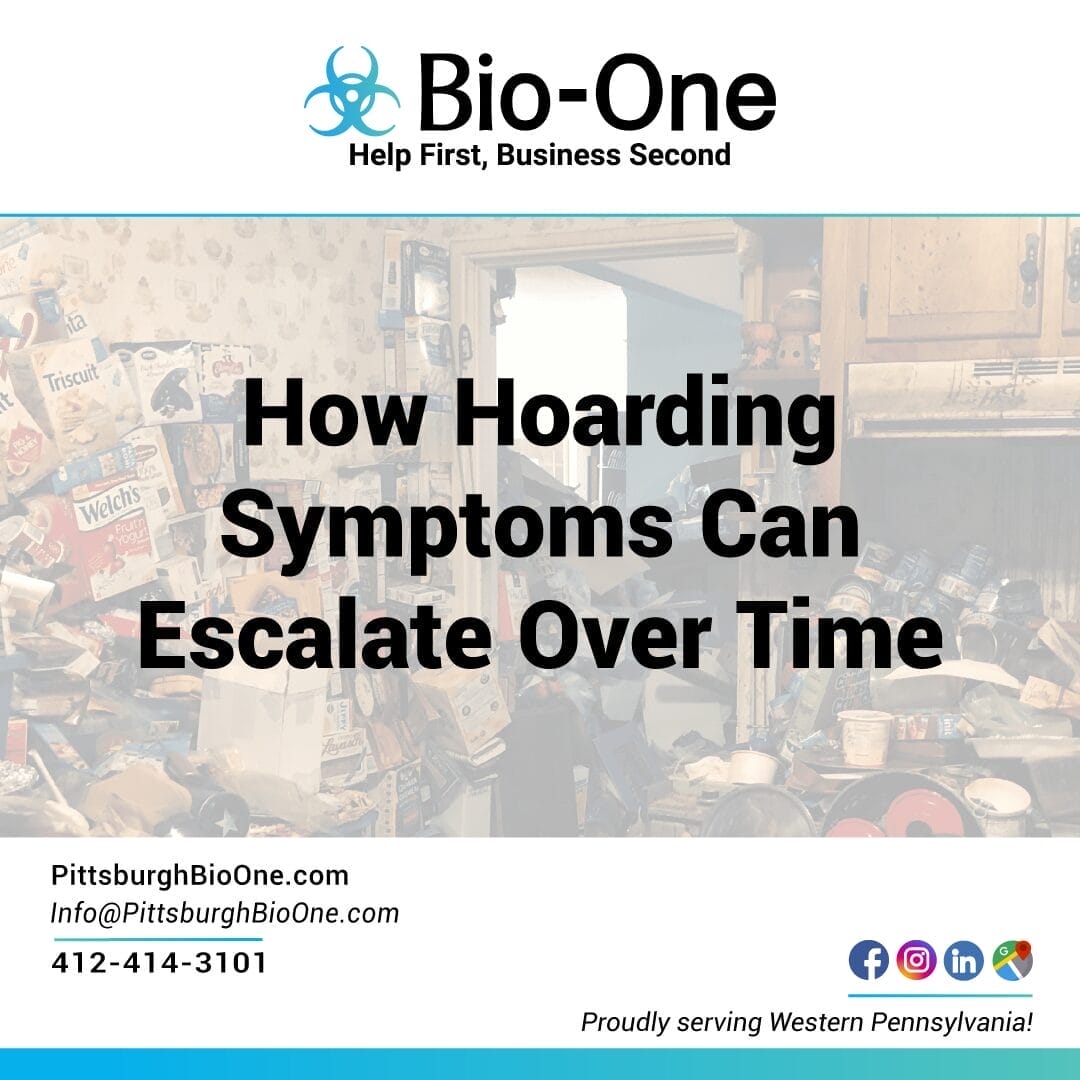
Hoarding is a disorder that prevents individuals from discarding or parting with possessions, resulting in the accumulation of clutter in their homes or living spaces. Hoarding symptoms can start small, with individuals collecting items of sentimental value or seemingly functional objects. However, these symptoms can escalate over time, leading to severe health concerns, both physical and mental.
In this blog post, we'll take a closer look at how hoarding symptoms can progress over time and provide some examples of how hoarding can get progressively worse. We'll also discuss the importance of seeking professional help for hoarding, including mental health assessments and hoarding cleanup services.

Hoarding symptoms can begin with small items, such as coins or books, but the accumulation of clutter can quickly escalate into something much larger. Individuals with hoarding tendencies may begin to feel overwhelmed by the amount of clutter they've collected, which ultimately makes them feel anxious or depressed. These feelings turn into a lack of motivation or energy to clean, further exacerbating the situation.
For example, Sarah was a former teacher who loved collecting children's books and toys. She would hang onto every art project or school assignment her students gave her, believing they held a special meaning. However, over time, her collection grew to an unmanageable amount, cluttering up every corner of her small apartment. Sarah began to feel anxious when she walked into her cramped home and eventually stopped inviting friends over altogether.
As the clutter accumulates, hoarding symptoms can progress to the point where it becomes impossible to navigate through the home safely. Hallways and doorways may become blocked, and items may start to pile up on beds or tables, making them unusable. It's not uncommon for individuals with hoarding tendencies to start sleeping on a couch or the floor due to the piles of clutter taking over their bed.
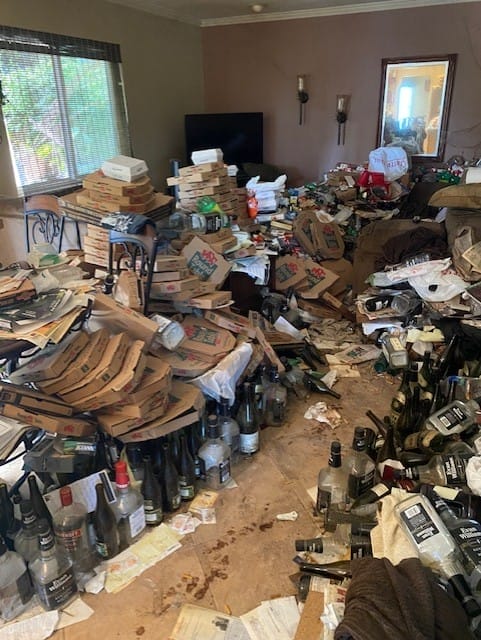
For instance, Tom was a retired mechanic who collected cars and tools. As time passed, he struggled to keep up with the maintenance and cleaning of his cars, resulting in them deteriorating. Instead of fixing what was broken, he began buying new cars to replace them. In turn, this created a cycle where he had too many cars to store in his garage, forcing him to park them in his driveway. Soon his driveway became blocked with cars, and he could no longer use his garage to store his tools.
Over time, as the hoarding symptoms become more severe, individuals may experience health problems due to the clutter in their homes. For example, mold and mildew can grow on damp surfaces hidden under piles of clothing or paper, leading to respiratory problems or other health concerns. Additionally, the clutter can create tripping hazards, leading to falls or other injuries.
Hoarding can begin with seemingly innocent collections. However, as symptoms escalate over time, individuals can experience severe health concerns and an inability to navigate through their living space safely. Seeking professional help for hoarding, from mental health assessments to hoarding cleanup services, can make all the difference in managing the situation.
Bio-One of Pittsburgh is the leading hoarding cleanup company in Western Pennsylvania. Our team understands that hoarding is a sensitive issue and works closely with individuals and their families to create a plan that fits their needs and budget. If you or someone you know is struggling with hoarding symptoms, don't wait to seek professional help. Bio-One is here to help, and we're just a phone call or email away!
